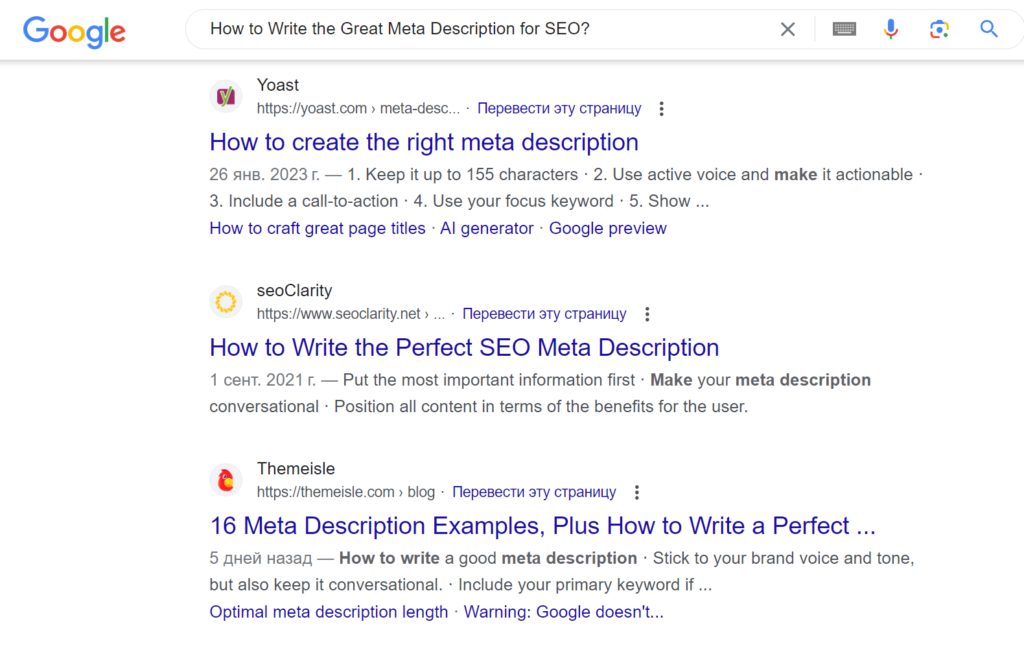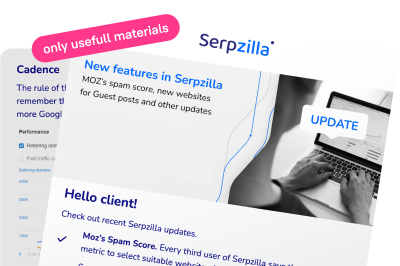Meta descriptions are an important element of internal site optimization. Their task is to provide the user and search engines with a brief overview of the page. If composed correctly, they can improve a site’s positions in Google and other search engines’ search results.

How to Compose a Useful Meta Description
The main thing is that the text clearly explains the page’s content. Including the address and cost of services in the meta description can be very useful for attracting clients.
Tip 1: Analyze Competitors
There might be effective ways to convey the page content to the user that you are unaware of. Analyzing the meta descriptions used by top-ranking competitors can provide you with interesting insights. Manual analysis of search results for each query is a painstaking task. Various services, such as the SEOquake extension for Google Chrome, can simplify this task.
Tip 2: Create a Customer Journey Map (CJM)
CJM is a visualization of the user experience that helps determine the effectiveness of marketing policies and client attraction activities. Essentially, you need to identify the optimal route your audience takes before performing a target action. It’s important to understand what should entice users and what information to place in the meta description text.
Tip 3: Use Keywords
Even though Google does not recommend using keywords in meta descriptions, they are still present, as seen in the analysis of top search results. Do not overuse keywords, but applying the most important ones is advisable. Follow the lead of your competitors – if you see keywords in their descriptions, they at least do not hinder their promotion success.
Tip 4: Study Trends
This may suggest topics to cover in the meta description. It can also indicate optimal sets of words and phrases to use. Analyze the market and stay updated on the latest news in your niche to generate fresh ideas.
Tip 5: Don’t Forget About Branding Style
Remember, the meta description is still your site’s content, so it should reflect your brand style and image. Adding uniqueness to it can increase its popularity with potential visitors. This can be challenging given the general conciseness of the text, but it can yield effective results. Try to maintain the same tones you use in your site’s text.
Tip 6: Identify Search Intent
It’s important to know your audience well and understand what they will be searching for. If you can match the search intent, the likelihood of a click on your page increases. Such analysis requires effort but can lead to good results. You may reconsider your views and conclude that some meta descriptions need a quality overhaul.
Tip 7: Make Updates
Don’t be afraid to update or even completely change existing descriptions. Firstly, due to the text’s brevity, this won’t take too much time. Secondly, sometimes updates may be necessary for more effective page optimization. It’s also likely that this work will increase the popularity of old pages and generate additional traff



